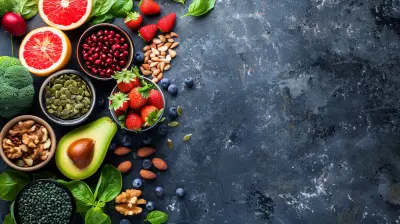What You Need to Know About Probiotics and Prebiotics
12 May 2025
When it comes to gut health, probiotics and prebiotics are buzzwords you'll hear a lot. But what exactly are they, and why do they matter? If you've ever been confused about whether you should be adding more probiotics or prebiotics to your diet, you're in the right place. Let's break it down in a simple, digestible way (pun totally intended). 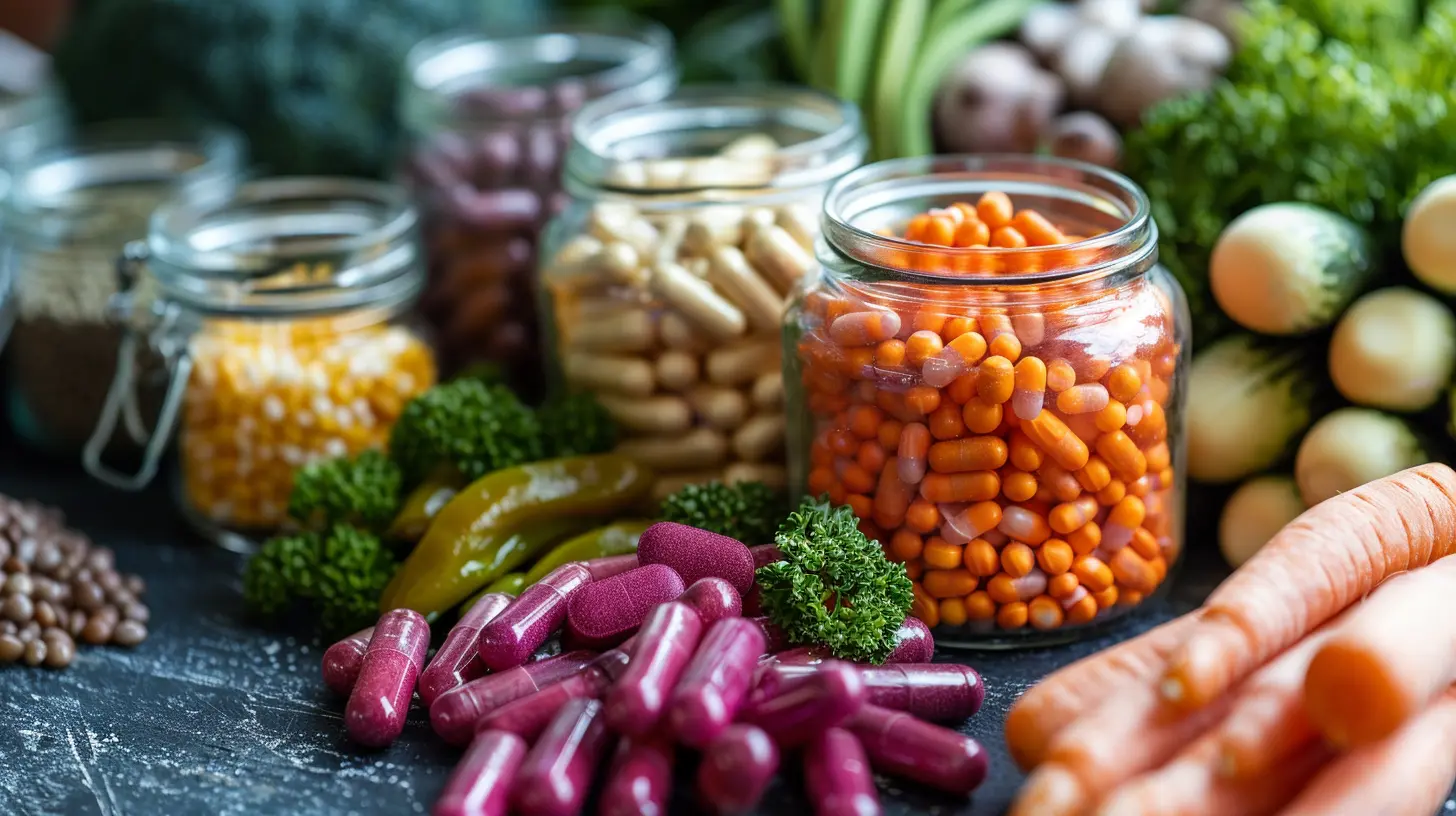
What Are Probiotics?
Probiotics are live bacteria and yeasts that are good for your gut. Sounds strange, right? We usually think of bacteria as harmful, but your body is actually full of bacteria—both good and bad. Probiotics are the "good" guys. They help keep your digestive system running smoothly by balancing the bacteria in your gut.How Probiotics Work
Think of your gut as a bustling city. Probiotics act as the friendly neighbors who keep everything running in harmony. They help maintain a balance between good and bad bacteria, preventing the bad ones from taking over and causing issues like bloating, diarrhea, and even infections.When you consume foods or supplements that contain probiotics, you're introducing more of these beneficial bacteria into your gut. They help with digestion, boost your immune system, and even play a role in mental health (ever heard of the gut-brain connection?).
Health Benefits of Probiotics
Including probiotics in your diet can offer a range of benefits, such as:- Improved Digestion – Probiotics help break down food and absorb nutrients more efficiently.
- Stronger Immune System – A healthy gut means a stronger defense system against infections.
- Better Mental Health – Research suggests that probiotics can help reduce anxiety and depression symptoms.
- Relief from Digestive Issues – If you suffer from irritable bowel syndrome (IBS) or bloating, probiotics might help ease your discomfort.
- Support for Antibiotic Use – Antibiotics kill both good and bad bacteria. Probiotics can help restore the balance.
Foods Rich in Probiotics
Wondering where to find these good bacteria? Here are some probiotic-rich foods:- Yogurt – One of the most well-known sources of probiotics.
- Kefir – A fermented milk drink packed with beneficial bacteria.
- Sauerkraut – Fermented cabbage that’s great for gut health.
- Kimchi – A spicy, fermented Korean dish loaded with probiotics.
- Miso – A Japanese seasoning made from fermented soybeans.
- Kombucha – A fizzy, fermented tea filled with probiotics. 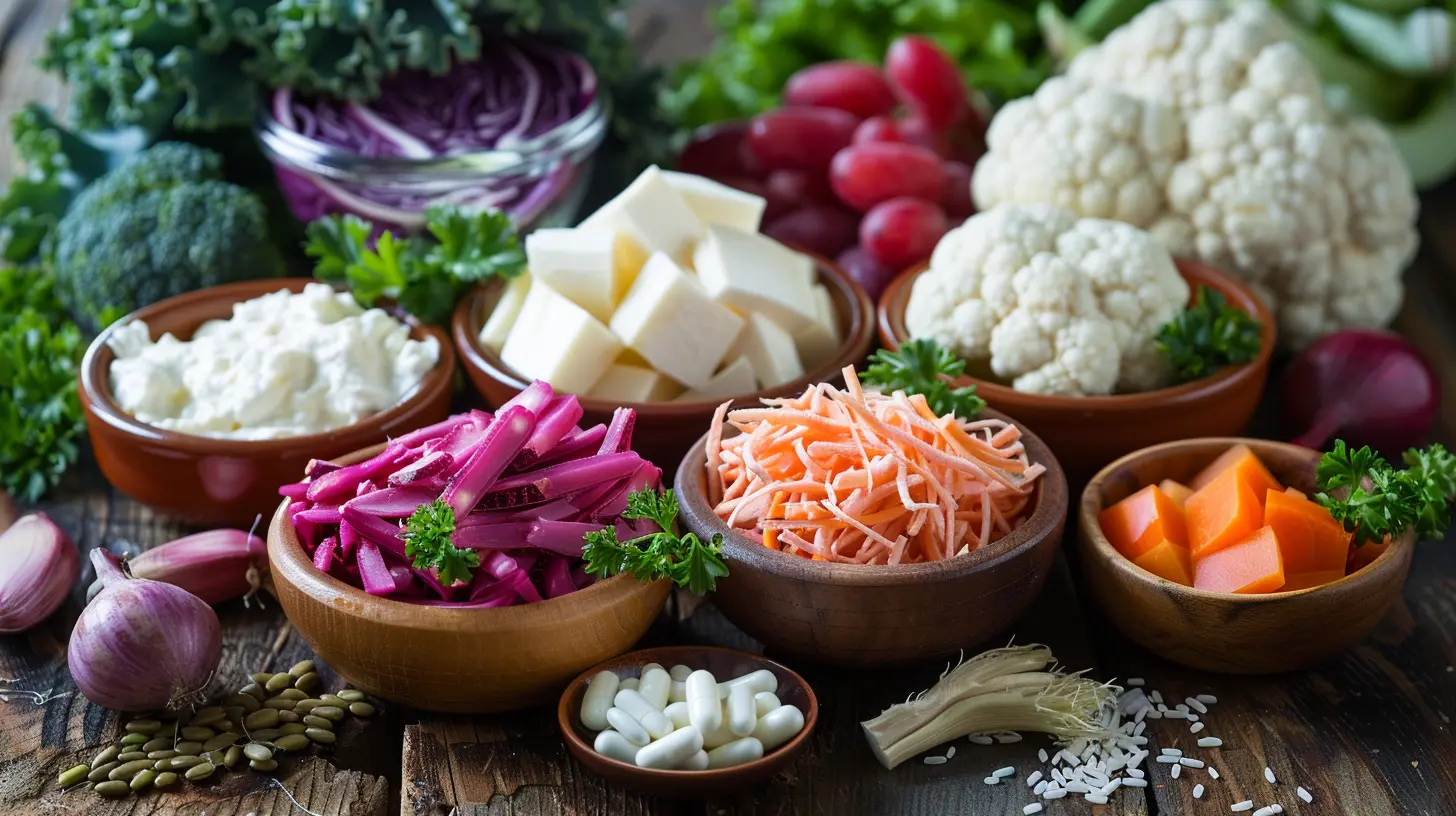
What Are Prebiotics?
Now that we’ve covered probiotics, let's talk about their lesser-known but equally important partners in crime—prebiotics.Prebiotics are types of fiber that feed the good bacteria in your gut. Think of them as fertilizer for probiotics. While probiotics introduce beneficial bacteria, prebiotics help them thrive and do their job effectively.
How Prebiotics Work
Imagine you just moved into a new city (your gut). You have a lot of potential, but without jobs, food, and resources, you won't last long. Prebiotics provide the necessary "food" for probiotics, ensuring they can grow, multiply, and keep your gut healthy.Without prebiotics, probiotics wouldn't be nearly as effective. They work best together, which is why it’s important to include both in your diet.
Health Benefits of Prebiotics
Adding prebiotics to your diet can offer several benefits, including:- Improved Gut Health – Encourages the growth of beneficial bacteria.
- Better Digestion – Helps prevent constipation and supports bowel regularity.
- Boosted Immunity – Strengthens your body’s natural defenses.
- Reduced Inflammation – May lower the risk of digestive disorders and chronic illnesses.
- Enhanced Nutrient Absorption – Helps your body absorb essential minerals like calcium and magnesium.
Foods Rich in Prebiotics
So, where can you find prebiotics? Here are some excellent sources:- Garlic – A natural prebiotic that also has antibacterial properties.
- Onions – Loaded with fiber to feed your gut bacteria.
- Bananas – Particularly when slightly unripe, they contain resistant starch, a great prebiotic.
- Asparagus – High in inulin, a type of prebiotic fiber.
- Oats – A fantastic source of beta-glucan, which supports gut health.
- Legumes (Beans, Lentils, Chickpeas) – Rich in fiber to fuel healthy gut bacteria. 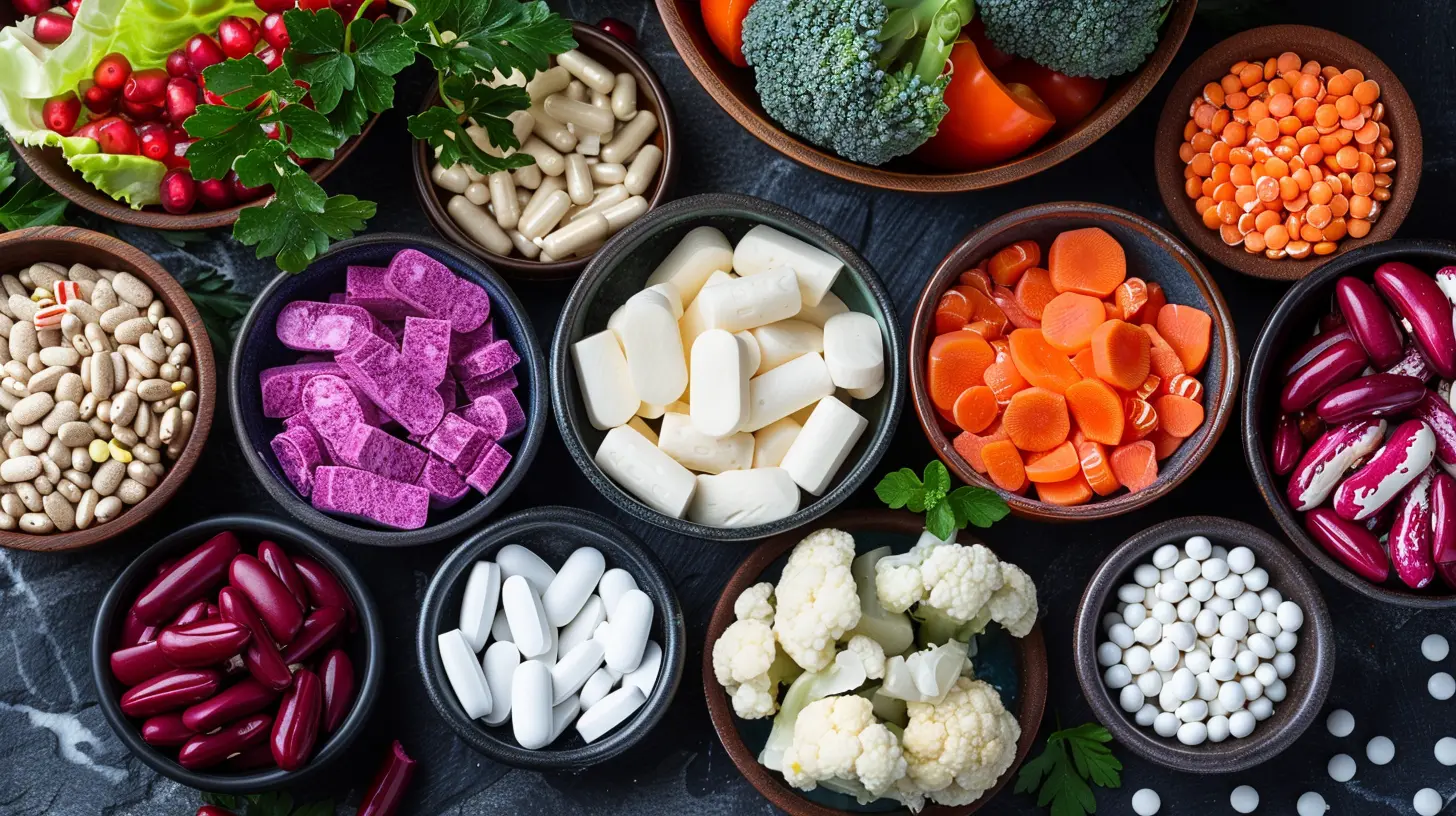
Probiotics vs. Prebiotics: What’s the Difference?
It’s easy to confuse probiotics and prebiotics, but they play very different roles:| Feature | Probiotics | Prebiotics |
|--------------|------------|------------|
| Definition | Live beneficial bacteria | Fiber that feeds good bacteria |
| Function | Replenish and maintain healthy gut bacteria | Promote the growth of probiotics |
| Found In | Yogurt, kefir, sauerkraut, kimchi | Garlic, onions, bananas, oats |
| Benefits | Improves digestion, boosts immunity, supports mental health | Enhances gut health, helps digestion, reduces inflammation |
Both are essential for a healthy gut, and when taken together, they form a powerful combination known as synbiotics. 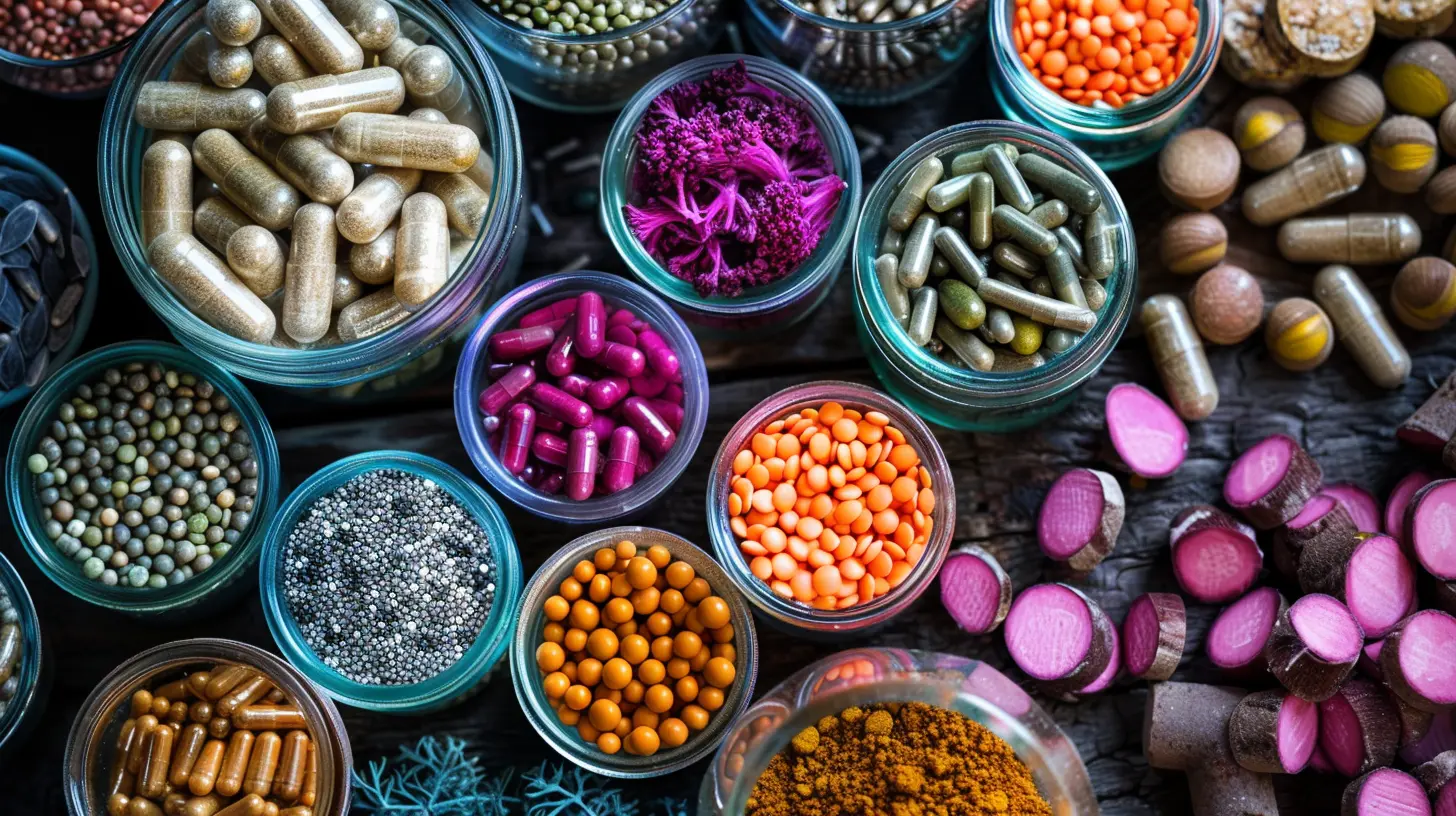
Should You Take Probiotic and Prebiotic Supplements?
While getting probiotics and prebiotics from food is the best approach, some people opt for supplements. Here’s what you should consider before taking them:Probiotic Supplements:
✅ Can help if you’ve taken antibiotics recently✅ Beneficial for people with digestive issues
✅ Different strains offer different benefits
⚠ Choose high-quality supplements with multiple strains of bacteria
⚠ Some may cause mild bloating initially
Prebiotic Supplements:
✅ Great for people who don’t eat enough fiber✅ Can improve the effectiveness of probiotic supplements
✅ Helps with digestion and overall gut health
⚠ Too much fiber can cause bloating and gas
⚠ Check for natural sources before supplementing
If you have any underlying health conditions or concerns, it’s always best to consult a healthcare professional before taking any supplements.
How to Incorporate Probiotics and Prebiotics into Your Diet
Making sure you get enough probiotics and prebiotics doesn't have to be complicated. Here’s an easy way to incorporate them into your daily routine:✅ Start your day with yogurt topped with bananas or oats.
✅ Add garlic and onions to your meals—soups, stir-fries, and salads.
✅ Include fermented foods like kimchi or sauerkraut as a side dish.
✅ Drink kombucha or kefir as a refreshing, gut-friendly beverage.
✅ Snack on nuts and seeds, which contain prebiotic fiber.
Small changes can make a big difference when it comes to gut health!
Final Thoughts
Your gut plays a crucial role in your overall health, and taking care of it with the right balance of probiotics and prebiotics is one of the best things you can do for your body. Think of them as your dynamic digestive duo—one introduces the good bacteria, while the other keeps them well-fed and thriving.By eating a diet rich in probiotic and prebiotic foods, you’re not just promoting better digestion, but also improving your immunity, mental health, and overall well-being. So next time you’re at the grocery store, grab some yogurt, bananas, garlic, or sauerkraut—your gut will thank you!
all images in this post were generated using AI tools
Category:
NutritionAuthor:

Jackson Mahoney
Discussion
rate this article
4 comments
Rook Vaughn
Thank you for this insightful article! It beautifully highlights the importance of probiotics and prebiotics in maintaining gut health. I'm grateful for the practical tips and clear explanations. Understanding the balance between these elements is crucial for overall wellness. Looking forward to incorporating them into my daily routine!
May 18, 2025 at 3:51 AM

Jackson Mahoney
Thank you for your kind words! I'm glad you found the article helpful and insightful. Wishing you the best on your journey to better gut health!
Davina McDowney
Great article! It effectively highlights the essential differences between probiotics and prebiotics, making it easier for readers to understand their benefits.
May 17, 2025 at 3:02 PM

Jackson Mahoney
Thank you! I'm glad you found it helpful in clarifying the differences.
Penelope McCollum
Great insights! Understanding probiotics and prebiotics is essential for gut health. Keep exploring and prioritizing your well-being!
May 17, 2025 at 3:53 AM

Jackson Mahoney
Thank you! I'm glad you found the insights valuable. Prioritizing gut health is key to overall well-being!
Priscilla McGeehan
Great article! Understanding the difference between probiotics and prebiotics is essential for maintaining gut health. Thank you for sharing!
May 12, 2025 at 4:44 AM

Jackson Mahoney
Thank you for your kind words! I'm glad you found the article helpful in understanding gut health.


